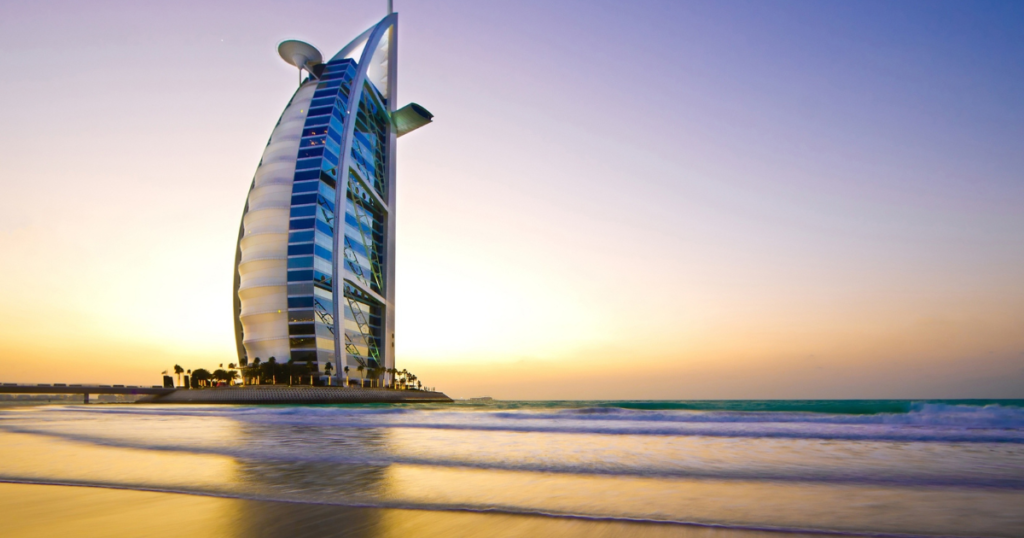In 2025, Dubai stands at the forefront of global innovation, driven by a powerful vision to become the smartest city in the world. From AI-powered transportation to blockchain-based government services, Dubai’s expanding tech scene is reshaping how people live, work, and interact every day. This transformation isn’t just futuristic — it’s happening right now, and it’s redefining life in a smart city.
Let’s take a closer look at how Dubai’s technological growth is creating a smarter, more connected urban experience.
A Government-Led Digital Revolution
Dubai’s tech revolution is no accident; it’s the result of strategic planning and ambitious leadership. Initiatives like the Dubai Smart City project and Dubai 10X aim to leap 10 years ahead of other global cities by rethinking how government services are delivered.
By 2025, over 90% of Dubai’s government transactions are fully digital and accessible online or through mobile apps. Whether you want to register a company, pay utility bills, or apply for a visa, it can be done with a few taps on your smartphone. Blockchain technology secures these services, making Dubai the first government in the world to operate fully on blockchain.
This seamless integration of technology into governance is a defining trait of life in Dubai today, setting a new global standard for smart living.
Smart Transportation: A Glimpse into the Future
Transportation is a core component of any smart city, and Dubai is pushing the limits here too. Autonomous vehicles, electric taxis, and AI-driven metro systems are now part of daily life.
By 2025, the Dubai Roads and Transport Authority (RTA) has introduced self-driving taxis in select areas. Hyperloop projects are under advanced planning stages, promising travel from Dubai to Abu Dhabi in under 15 minutes. Drone taxis are also being tested to make personal air travel a reality.
Thanks to real-time data and AI traffic management systems, congestion has decreased significantly, making daily commutes faster and smoother for residents.
Smart Homes and Living Spaces
Dubai’s real estate market is equally fueled by technology. Most new residential communities and high-end properties are equipped with smart home features — think voice-activated lighting, AI security systems, and energy optimization tools that monitor and reduce your electricity usage automatically.
Projects like Dubai Silicon Oasis and Sustainable City are perfect examples, where entire neighborhoods are designed to be smart, sustainable, and energy-efficient. In 2025, more than 70% of new homes come fitted with built-in smart tech, making futuristic living not just a luxury, but a new norm.
Healthcare Powered by AI and Robotics
Dubai’s healthcare sector is another area where technology is making a life-changing impact. Through initiatives like the Dubai Health Strategy 2025, hospitals are increasingly using AI for diagnostics, robotic surgery, and patient management.
Telemedicine services, AI-powered health apps, and smart wearable devices allow residents to monitor their health in real time. You can consult a doctor, receive prescriptions, and even book surgeries — all remotely.
This integration of technology into healthcare ensures faster response times, better diagnosis accuracy, and an overall healthier population, contributing to a higher quality of life in the city.
Artificial Intelligence at Every Corner
AI is the invisible engine powering Dubai’s smart city ambitions. Whether it’s AI chatbots handling customer service for banks and telecom companies or facial recognition systems improving airport security, the presence of artificial intelligence is deeply woven into the city’s infrastructure.
The Dubai AI Lab continues to experiment and roll out innovations, from predictive policing to personalized education platforms. With the government actively promoting AI startups through grants and accelerators, Dubai is becoming a global hub for AI entrepreneurship.
Living in Dubai in 2025 means engaging with AI on a daily basis — in shopping malls, in classrooms, and even in public parks, where smart sensors optimize lighting, irrigation, and safety.
Smart Retail and Lifestyle
Dubai’s malls and retail centers are iconic, and they’re getting smarter too. Virtual reality (VR) shopping experiences, AI styling assistants, and personalized promotions based on shopping habits are commonplace.
The introduction of “cashier-less” stores, similar to Amazon Go, allows shoppers to simply pick up their items and walk out, with payments automatically deducted via smartphone apps. Dining experiences are also elevated with AI-powered ordering systems and robotic servers.
This tech-driven retail ecosystem creates more convenient, personalized, and enjoyable experiences for both residents and visitors.
The Role of Sustainability in a Smart City
Smart doesn’t just mean high-tech — it also means sustainable. Dubai’s focus on green building standards, renewable energy projects like the Mohammed bin Rashid Al Maktoum Solar Park, and smart waste management systems underscore its commitment to sustainability.
Residents can monitor their carbon footprint through apps linked to utilities and transportation services. Eco-friendly lifestyle choices are encouraged and even rewarded through loyalty programs run by the city.
This marriage of technology and sustainability ensures that Dubai’s growth doesn’t come at the expense of the environment, making it a truly future-ready city.
Conclusion: Life in Dubai’s Smart City
Dubai’s expanding tech scene is no longer just about luxury or innovation for the sake of prestige. It’s about creating a better quality of life for everyone who calls the city home.
From efficient government services to intelligent transportation, from AI-powered healthcare to smart homes, living in Dubai in 2025 means living in one of the most connected, convenient, and forward-thinking environments in the world.
As the city continues to invest heavily in emerging technologies, one thing is clear: Dubai is not just preparing for the future — it is setting the future’s standards.

